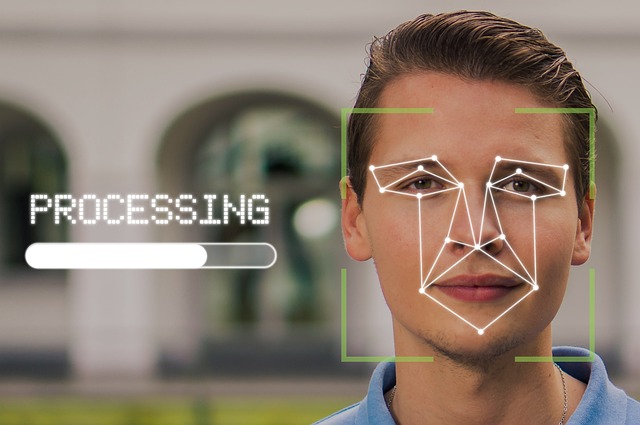Before purchasing a vehicle, it's essential to conduct a thorough VIN (Vehicle Identification Number) check to safeguard your financial investment and ensure the car is safe and reliable. The VIN provides detailed information about the car's history, including past accidents, salvage titles, or stolen vehicle statuses. Scammers may alter vehicle history records, so a VIN verification against official records is critical. This process confirms the car's actual condition and ownership history, protecting buyers from fraud and legal issues like undisclosed repairs or liens. The Federal Trade Commission advises this step to avoid costly mistakes and legal complications. A reliable VIN decoding service should be used to cross-reference reported details with official databases, ensuring the car's true condition is known before the sale. Additionally, License Plate to VIN Matching verifies that the vehicle's history report matches state motor vehicle records, preventing misrepresentation by sellers. By adhering to these checks, buyers can confidently avoid the risks of purchasing a vehicle with hidden issues or fraudulent histories.
In recent times, the prevalence of fraudulent vehicle sales has surged, presenting a significant risk for consumers. The Federal Trade Commission has sounded the alarm, emphasizing the critical importance of Vehicle Registration Validation and License Plate to VIN Matching when purchasing a car. Scammers have become adept at manipulating these details to obscure a vehicle’s history, potentially leaving buyers with costly problems. This article delves into the essential practice of VIN authentication, outlining its role in safeguarding your automotive investment and ensuring the integrity of your purchase. We will explore the risks associated with bypassing this verification process, heed the FTC’s cautionary stance on car buying fraud, and provide a comprehensive guide on leveraging a VIN decoding tool to verify a vehicle’s background against official records. Additionally, we’ll cover the steps for effective License Plate to VIN Matching, empowering you to make informed decisions in the car marketplace.
- Understanding VIN Authentication in Car Sales
- Risks of Ignoring VIN Verification
- The Federal Trade Commission's Warning on Car Buying Fraud
- How to Use a VIN Decoding Tool Effectively
- Protect Your Purchase with License Plate to VIN Matching
Understanding VIN Authentication in Car Sales

When considering the purchase of a vehicle, due diligence is paramount to safeguard your financial investment and ensure the safety and reliability of the car itself. A critical aspect of this process is VIN authentication, which stands for Vehicle Identification Number authentication. The VIN is a unique identifier composed of 17 characters that encode vital information about the vehicle’s make, model, year, manufacturing plant, and more. Scammers have devised schemes to manipulate or fabricate vehicle history records, often altering license plates or misrepresenting a car’s registration details to conceal its true condition. These deceptive practices can lead unsuspecting buyers into purchasing vehicles with hidden damage, salvage titles, or even stolen cars.
To avoid falling victim to such fraudulent activities, it is essential to employ a trusted VIN decoding tool. This service allows potential buyers to cross-reference the vehicle’s reported history against its actual records. By inputting the VIN into a legitimate and comprehensive VIN authentication database, one can verify the authenticity of the car’s history, check for past accidents or title issues, and ensure that the vehicle has not been reported stolen or marked as a total loss by insurance companies. This verification process is an indispensable step in the car buying journey, offering peace of mind and helping to mitigate the risks associated with fraudulent car sales. Always conduct this VIN check before finalizing any vehicle purchase to guarantee the vehicle’s history aligns with its presented records.
Risks of Ignoring VIN Verification

Ignoring VIN verification when purchasing a vehicle can expose buyers to significant risks. A fraudulent sale, often facilitated by tampered VIN numbers or misrepresented vehicle history, can result in costly repairs and unexpected legal issues. The VIN is the vehicle’s unique identifier, linking it to its past—including previous accidents, maintenance records, and ownership history. Without proper verification, buyers may inadvertently purchase a vehicle with hidden structural damage or title problems, such as being branded as ‘junk’ or having an outstanding lien against it. These issues can not only diminish the car’s value but also render it illegally sold. Consumers who overlook VIN checks may find themselves saddled with a vehicle that could be repossessed, or whose insurance coverage is invalidated due to false declarations of its history. Thus, utilizing a trusted VIN decoding tool is not just a precaution—it’s an essential step in the car-buying process to safeguard against fraud and ensure the integrity of the transaction.
The Federal Trade Commission's Warning on Car Buying Fraud

The Federal Trade Commission has issued a stern warning to consumers about the rising incidence of fraudulent vehicle sales. Scamm artists are increasingly altering Vehicle Identification Numbers (VIN) and registration details to disguise a car’s true history, which may include past damage, salvage titles, or odometer tampering. These manipulations make it appear as though the vehicle is in better condition than it truly is, potentially leading unsuspecting buyers into costly and dangerous situations. The FTC emphasizes that buyers must conduct a thorough VIN authentication process to verify the car’s authentic information against official records. This step is crucial in safeguarding one’s investment and ensuring the safety and reliability of the vehicle purchased.
To avoid falling victim to such fraudulent schemes, it is imperative to utilize trusted VIN decoding tools. These resources provide an accurate comparison between the vehicle’s presented details and its official history. By cross-referencing the VIN with databases that hold the car’s complete service and accident records, consumers can uncover any discrepancies or hidden issues. The FTC advises that this due diligence is not just a step for used car buyers; even new car purchases should be subjected to VIN authentication to confirm the vehicle has not been reported as stolen or has any liens against it. With vigilance and the use of reliable verification tools, consumers can significantly reduce their risk of being deceived by fraudulent vehicle sales.
How to Use a VIN Decoding Tool Effectively

When purchasing a vehicle, particularly in today’s market where fraudulent sales are on the rise, due diligence is paramount. A robust approach to verification involves utilizing a VIN decoding tool, which provides a comprehensive report based on the car’s unique Vehicle Identification Number (VIN). This report includes detailed information about the vehicle’s history, such as past owners, accident records, mileage consistency, and title branding. To use a VIN decoding tool effectively, start by locating the VIN, which is typically found on the car’s dashboard near the windshield or on the driver’s side dashboard. Once you have the VIN, enter it into the tool of your choice—many reputable services offer this online. The tool will then cross-reference the provided VIN with national databases to authenticate the vehicle’s information. It’s crucial to compare the reported data against the physical condition of the car and its documentation to ensure consistency. This step-by-step verification can reveal discrepancies that may indicate a salvaged title, odometer tampering, or other issues that could affect the vehicle’s value and safety. By thoroughly checking the VIN and the accompanying report, you can significantly reduce the risk of falling victim to fraudulent car sales and make an informed decision about your potential purchase. Always remember to review the entire report carefully, as it may contain critical information about the vehicle’s history that could influence your buying decision.
Protect Your Purchase with License Plate to VIN Matching

When purchasing a used vehicle, due diligence is paramount to safeguard your financial investment and ensure the safety and reliability of the car you’re considering. One critical step in this process is the License Plate to VIN Matching procedure. This method involves cross-referencing the vehicle identification number (VIN) with the state’s motor vehicle records associated with the license plate number. By doing so, potential buyers can verify that the car’s official history reports match the details provided by the seller. This is essential as scammers often use fraudulent documents to mask a car’s true condition, which may include salvage titles, odometer tampering, or accidental damage not disclosed. A VIN decoding tool can provide instant access to the vehicle’s history, including previous owners, accident records, and service history, allowing you to make an informed decision without falling victim to deceptive practices. It’s a simple yet powerful step that can save you from the financial and safety risks associated with purchasing a car with hidden issues. Always insist on a VIN check and License Plate to VIN Matching before finalizing any vehicle purchase to ensure the authenticity of your investment.
In wrapping up our discussion, it’s clear that vehicle buyers must be vigilant and proactive in the face of rising fraudulent sales tactics. The Federal Trade Commission’s recent warning underscores the necessity of implementing measures such as VIN authentication and License Plate to VIN Matching to safeguard against deceptive practices that conceal a car’s history. Utilizing a reliable VIN decoding tool emerges as an essential step in verifying a vehicle’s authenticity and ensuring its records align with the physical vehicle. By doing so, you can confidently navigate the car-buying process and protect your investment from hidden damages or titles. Stay informed, be cautious, and let due diligence guide your purchase for a secure and satisfying transaction.



